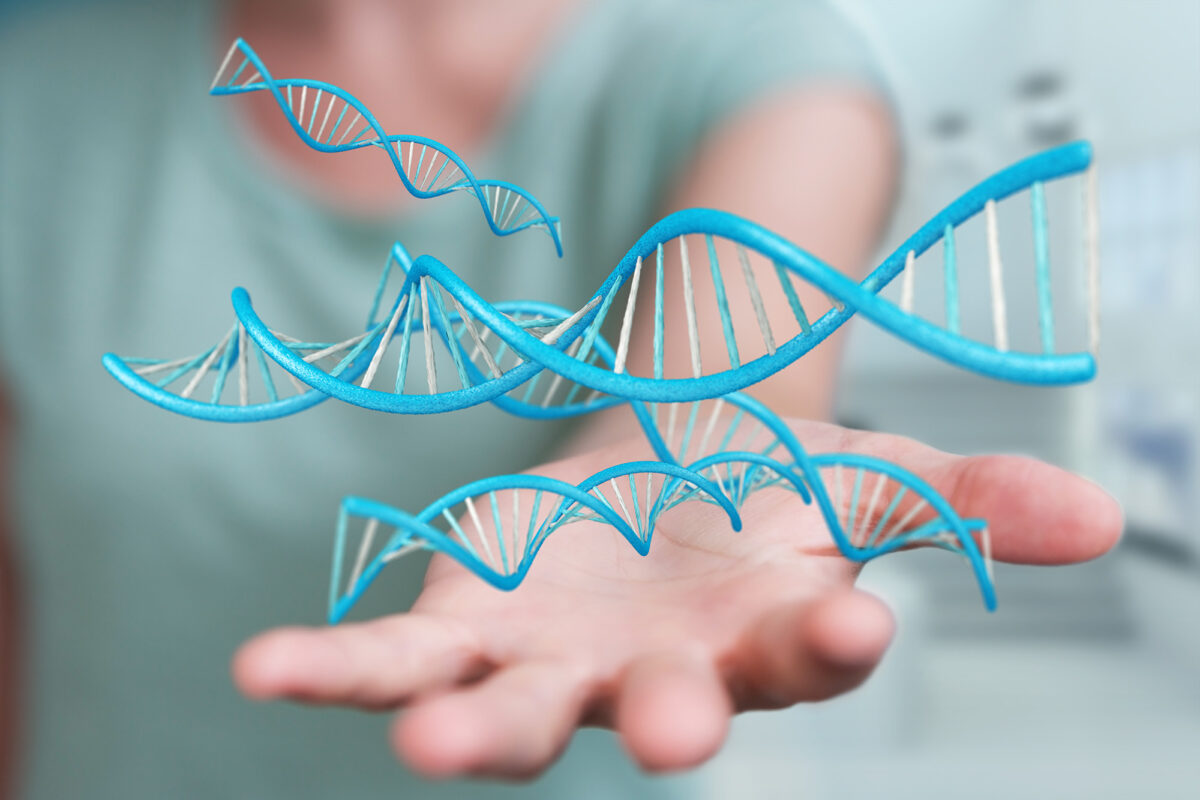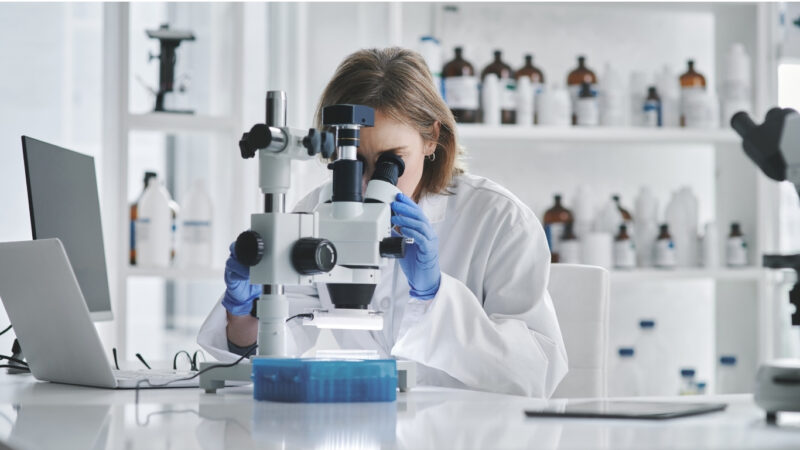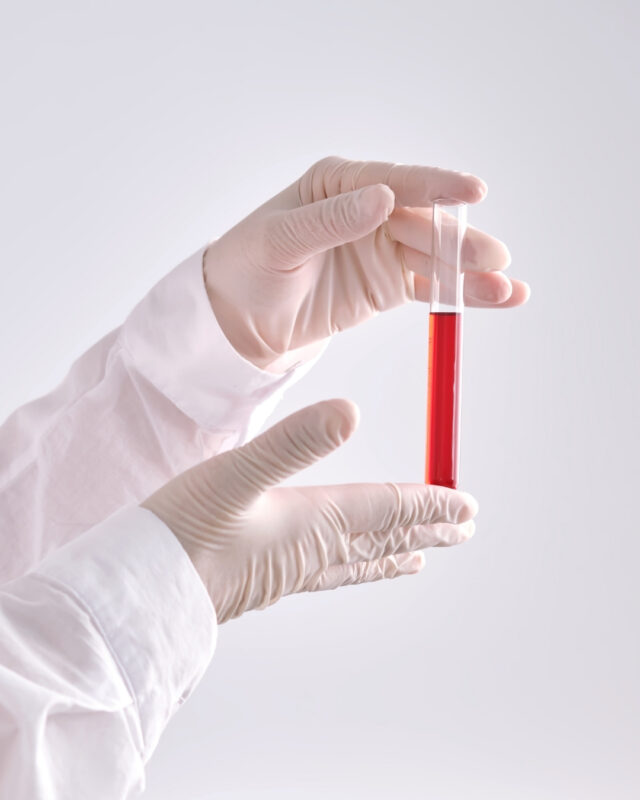DNA is like a double helix, forming the basis of many science fiction stories and the actual foundation of real science. This molecule stores genetic instructions within our cells, akin to a book within ourselves.

If genes were a book, epigenetics would be the notes in the margins!
Mutations in DNA occasionally occur and these mutations can be passed from one generation to another. But what about epigenetics? Understanding the relationship between DNA mutations and epigenetics is crucial. Epigenetics is a field that investigates how environmental factors affect gene expression. This means that beyond our genetic heritage, our lifestyle and environment also impact gene expression (1).
Have you ever wondered why cells containing the same DNA code behave differently? For instance, while liver cells metabolize nutrients, skin cells with the same DNA appear in a completely different form and function. The secret lies in the varying levels of gene expression within each cell, governed by the mechanisms of Epigenetics.
If genes were a book, DNA would be the letters and epigenetics would be the notes in the margins. In other words, DNA mutations and epigenetics can influence each other. When a gene undergoes some change, it can affect how much it’s expressed. It’s a bit complex but truly fascinating!
Let’s think for a moment: Can what we eat, drink, the air we breathe, or even the people around us influence our genes? The answer is YES! Epigenetics examines how everything in our environment affects our health. Regular exercise, a healthy diet, and even a stress-free life can affect our genes (2).
Can our traumas affect our epigenetics?
But can our experiences and traumas affect our epigenetics? Again, the answer is yes. Some studies suggest that traumatic experiences can impact gene expression. Factors such as dietary habits, alcohol, or substance addiction can also influence epigenetics, potentially impacting disease susceptibility (3).
Epigenetics is not inherently hereditary but can become hereditary. It starts as a non-heritable characteristic because epigenetic marks affect gene expression without altering the DNA sequence. These changes can occur due to environmental factors or lifestyle choices. If these epigenetic changes occur in egg or sperm cells, they can be passed on to the next generation (4).

Are we inheriting our ancestors’ traumas?
If epigenetics can be influenced by our lifestyle, diseases, or past traumas and can be hereditary, then it suggests that our parents’, even our ancestors’, experiences play a significant role in our DNA’s function (5).
Recent studies and discussions have associated inherited behavior patterns with epigenetics. For example:
In one study, it was found that offspring of parents raised in a stressful environment were more sensitive to stress and secreted more stress hormones. This study indicates that stress can alter DNA methylation, impacting gene expression, which can be passed down to offspring (6).
Another study showed that offspring of mothers experiencing hunger consumed more food as adults and had a higher risk of obesity. This research demonstrates that hunger can alter DNA methylation, influencing gene expression and passed down to offspring (7).
Another study found that children living in a war environment had a higher risk of developing post-traumatic stress disorder (PTSD). These children showed a relationship between DNA methylation and the expression of genes associated with PTSD (8).
These studies demonstrate that inherited behavioral patterns can be shaped through epigenetic changes.
However, the molecular complexity of epigenetic inheritance and when and how it is passed down are not yet fully understood. Environmental factors and lifestyle choices may affect epigenetic markers, but the exact processes and mechanisms of transgenerational transmission are not entirely clear (9). Ongoing research may provide a better understanding of when and how epigenetic inheritance occurs.
It’s a fact that there’s still a long way to go in the field of epigenetics. New discoveries in this area may illuminate the secret to a healthy and long life. Perhaps in the future, by better understanding the mysteries of epigenetics, we can steer our healthy aging process.
From this text, we’ve learned that epigenetics is indeed an essential subject. We can influence our own genes, and that’s incredibly empowering! This means that we have a significant power in shaping some lines of our destiny. Science is truly something that shapes and gives meaning to our lives. Here’s to discovering more scientific breakthroughs in the times to come!
Fun Facts
- Epigenetic changes can occur at every stage of our lives, from development in the womb to aging.
- Epigenetic changes can be hereditary.
- Falling into depression can change our epigenetics.
Referrences:
- Mazzio, E. A., & Soliman, K. F. (2012). Basic concepts of epigenetics: impact of environmental signals on gene expression. Epigenetics, 7(2), 119-130.
- Ricks, J. (2014). The Biology of Beating Stress: How Changing Your Environment, Your Body, and Your Brain Can Help You Find Balance and Peace. Red Wheel/Weiser.
- Al Jowf, G. I., Snijders, C., Rutten, B. P., de Nijs, L., & Eijssen, L. M. (2021). The molecular biology of susceptibility to post-traumatic stress disorder: highlights of epigenetics and epigenomics. International journal of molecular sciences, 22(19), 10743.
- Burggren, W. (2016). Epigenetic inheritance and its role in evolutionary biology: re-evaluation and new perspectives. Biology, 5(2), 24.
- Lehrner, A., & Yehuda, R. (2018). Cultural trauma and epigenetic inheritance. Development and psychopathology, 30(5), 1763-1777.
- Bale, T. L. (2006). Stress sensitivity and the development of affective disorders. Hormones and behavior, 50(4), 529-533.
- Savona-Ventura, C., & Savona-Ventura, S. (2015). The inheritance of obesity. Best Practice & Research Clinical Obstetrics & Gynaecology, 29(3), 300-308.
- Ramo‐Fernández, L., Schneider, A., Wilker, S., & Kolassa, I. T. (2015). Epigenetic alterations associated with war trauma and childhood maltreatment. Behavioral sciences & the law, 33(5), 701-721.
- Deans, C., & Maggert, K. A. (2015). What do you mean,“epigenetic”?. Genetics, 199(4), 887-896.





